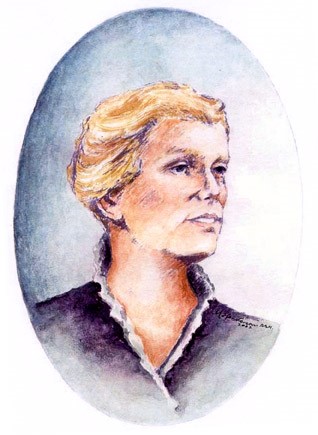Wednesday September 24
 Mercy Day
Mercy Day
The great feast that unites the Mercy world is Mercy Day. Its origin dates back to September 24th, 1827 when the House on Baggot Street opened as a school for the education of poor young girls and as a residence for homeless girls and women.
3 bishops come to mind.
1) Bishop 1 Dom Hélder Câmara (1909-1999)
Once, at a St. Louis celebration of the 150th anniversary of Sisters of St. Joseph in the US, Archbiship Dom Hélder Câmara changed me. He had come from his home, the northeast industrial city of Recife, Brazil. Dom Helder was a little man full of fun, passion and courage. On the banks of the Missouri with 1000+ people sitting on the levee, his voice was drowned out by a tourist helicopter taking off just behind him. He paused, turned around, gave the tourists and the pilot a little wave, and turned back to business. Later, in a formal address, he grew so angry at the violence of extreme wealth/extreme poverty that he wept as he spoke . . . and then spoke of God’s astonishing love for the human family and began laughing with abandon — all this in the same grammatical sentence. Dom Hélder was completely believable, one of my heroes.
2) Bishop 2 Blase Cupich
Late last Saturday night, I read on-line that Pope Francis had named Blase Cupich the new Chicago Archbishop. A wave of delight for me and many. Chicago is one of the big-dog dioceses of the country, a pivotal public voice of U.S. Catholicism. I briefly met Cupich on the Pine Ridge Reservation when he was Bishop of Rapid City SD and had heard from local people that he has a welcoming presence. In his Sept 23 blog John Gehring contrasted Bishop Cupich with the retiring Cardinal Francis George:
“Bishop Blase Cupich of Spokane, Wa., an unexpected pick, replaces the hardline Cardinal Francis George, who clashed with the Obama administration, compared organizers of a Chicago gay pride parade to the Ku Klux Klan, and once declared liberal Catholicism an “exhausted project.” Cupich prefers dialogue and common ground to rhetorical fireworks. When some bishops warned that Catholic institutions could be shut down because of the contraception mandate in Obamacare, he cautioned against “scare tactics” and instead emphasized the church’s commitment to universal health care. “We should never stop talking to one another,” he wrote in a 2012 essay in the Jesuit America magazine.”
All week I’ve been smiling and getting emails from friends around the country who are smiling too.
3) Pope Francis changes Catholic focus. In an early interview published September 19, 2013 Francis created a metaphor that has become a bedrock description of what the RC Church ought to be — field hospital.
“The thing the church needs most today is the ability to heal wounds and to warm the hearts of the faithful; it needs nearness, proximity. I see the church as a field hospital after battle. It is useless to ask a seriously injured person if he has high cholesterol and about the level of his blood sugars! You have to heal his wounds. Then we can talk about everything else. Heal the wounds, heal the wounds. … And you have to start from the ground up.”
I don’t know why these three bishops all came to mind this morning when I contemplated today’s post. All three help me imagine that you do not have to ignore savage grief in order to dance with joy. So does Denise Levertov. Best to read her out loud.
Have a great day, another dazzling welcome into Autumn.
john sj
Today’s Post: from “Conversation in Moscow”
And the poet–it’s midnight, the room is half empty, soon we must part–
the poet, his presence
ursine and kind, shifting his weight in a chair too small for him,
quietly says, and shyly:
“The Poet
never must lose despair.”
Then our eyes indeed
meet and hold,
All of us know, smiling
in common knowledge–
even the palest spirit among us, burdened
as he is with weight of abstractions–
all of us know he means
we mustn’t, any of us, lose touch with the source,
pretend it’s not there, cover over
the mineshaft of passion
despair somberly tolls its bell
from the depths of,
and wildest joy
sings out of too,
flashing
the scales of its laughing, improbable music,
grief and delight entwined in the dark down there.
Denise Levertov, “Conversation in Moscow” in Freeing of the Dust
